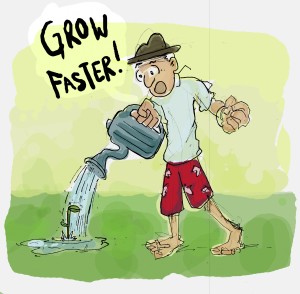When I read this news the first time, I read it with little discomfort. I realized there is nothing much I can do to change it so it didn’t bother me. Till I read it again this morning when it appeared on my feed. This time I read it while I was reading the recent debate going on between Sen-Bhagwati, here’s a good piece to get updated on whats happened so far. In a nutshell its about two views on India’s economic reform policy from two leading economists. Amartya Sen’s view is more investment in social infrastructure boosts the productivity of a nations people and thereby raises growth, Bhagwati on the other hand views that only a focus on growth can yield enough resources for investing in social sector schemes. Both may disagree on what is more important but it cant be denied that Sen weds his conception of enhancing the poor’s capabilities to the presence and expansion of capitalist markets. Lets leave this thought for a moment, and come back to why the gmail news bothered me today.
I adopted gmail because it was free (well not really, but you know what I mean), new and the invite was a birthday gift in 2004. So I dropped all previous email clients, (yahoo, rediffmail, hotmail) and moved lock stock and barrel to gmail. The adoption came easy, everyone who was internet savvy at the time had a gmail address. I joined in the exclusive category, even offered to forward invites when I was bestowed with them to my select few. This modus operandi can be applied to adoption of other free internet based platforms to meet various social needs, to name a few: facebook, orkut, twitter etc. Disguised as free these are all fruits of capitalism. They are funded by venture capitalists, though they may have been started by young innovators in their dorm rooms initially but they all have very deep pockets behind them that want them to make their pockets deeper. In our society today, capitalism defines every aspect of our social being and that applies profoundly to the internet. In fact this gmail news was a huge reality check of sorts and that bothered me.
I, like many others am interested in social change and social good. I like many others have seen the potential benefits of technology in changing power dynamics for the better. Not naive about it, I have also been aware of the negative implications. But at the same time the crude capitalistic undertones had not become more obvious than now [partly because am slow :)]. But the complete unfazed profit motive of today’s corporates is a matter of both grave concern not just for those online but those offline as well. When Herbert Marcuse wrote in his 1964 book One-Dimensional Man: “The traditional notion of the ‘neutrality’ of technology can no longer be maintained. Technology as such cannot be isolated from the use to which it is put; the technological society is a system of domination which operates already in the concept and construction of techniques.”
As I ranted in my other post, “The effects of a technology are a product of the interaction of its components with other components, where each component has a purpose and is a technology in itself.” the Internet and the companies that provide services on it are shaped by how we as society opt to develop them. When we as a society are driven by our capitalist, profit driven agenda then it is no wonder that the Internet itself becomes a capitalist’s ultimate tool. So whether one agrees with Sen or Bhagwati economic reform policy in either cases seems to lead us to greater presence and expansion of capitalism.


